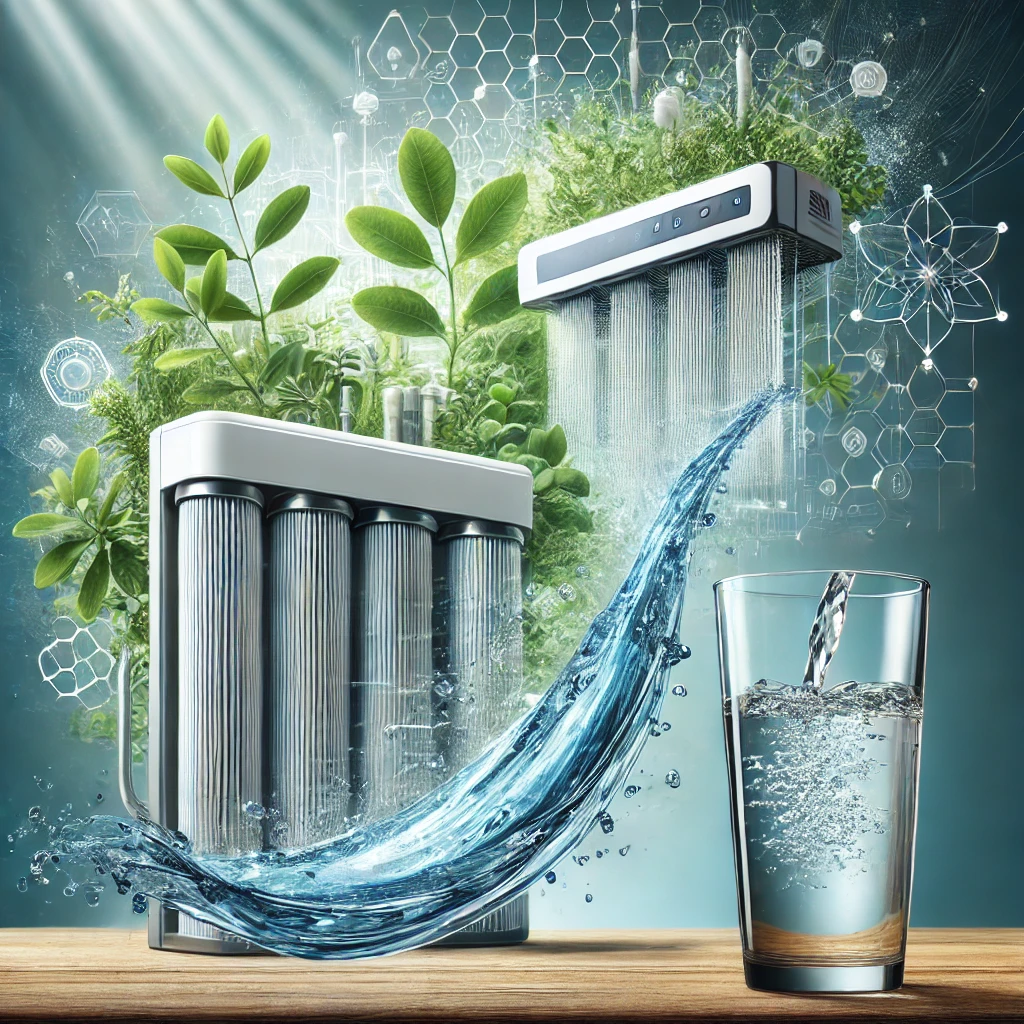The Power of Pure Water: Why Clean Water Solutions Matter

Water is the essence of life, impacting everything from our health to the environment. With growing concerns over water contamination, access to clean water solutions has become more important than ever. Whether for drinking, cooking, or bathing, ensuring that your water is free from toxins, chemicals, and harmful bacteria can significantly improve overall wellness.
At AquaZen Wellness, we understand the importance of high-quality water and the role it plays in a healthy lifestyle. This article will explore the significance of pure water, how to improve water quality at home, and why investing in clean water solutions is a step toward better health and sustainability.
Why Water Purity Matters for Your Health
Water contamination is a global issue, affecting millions of people every year. Pollutants such as heavy metals, chlorine, pesticides, and bacteria can make their way into household water supplies, posing serious health risks. Some common concerns associated with impure water include:
- Digestive issues caused by bacteria, parasites, and other contaminants that can lead to stomach cramps, diarrhea, and infections
- Skin irritation from chlorine and other chemicals that strip the skin of natural oils, causing dryness and irritation
- Toxin accumulation due to prolonged exposure to heavy metals like lead and mercury, which can contribute to long-term health complications
- Disruptions in pH balance caused by certain pollutants, which may impact hydration and essential bodily functions
Ensuring access to purified water can help combat these issues while promoting optimal hydration, improved digestion, and better overall health.
Common Contaminants in Tap Water
Many people assume that tap water is safe, but studies have shown that it often contains various pollutants, including:
- Lead and heavy metals that can leach into water from aging pipes, posing risks of neurological and developmental problems
- Chlorine and fluoride that, while used for disinfection, can have adverse effects on health when present in excessive amounts
- Bacteria and parasites that thrive in untreated or improperly treated water, leading to infections and other health issues
- Pharmaceutical residues that may remain in municipal water supplies due to improper disposal and inadequate filtration
With these risks in mind, investing in proper water filtration and purification becomes a necessity rather than a luxury.
How to Improve Water Quality at Home
There are several ways to ensure the water you consume and use daily is safe and beneficial to your health:
Install a High-Quality Water Filtration System
A robust water filtration system removes contaminants, improving taste and safety. There are multiple types of filters available, such as:
- Activated carbon filters that remove chlorine, pesticides, and odors, making water taste and smell better
- Reverse osmosis systems that effectively eliminate heavy metals, bacteria, and dissolved solids, providing clean and safe drinking water
- UV water purifiers that destroy bacteria and viruses without using chemicals, making them ideal for those concerned about added substances in their water
Choose Glass Over Plastic for Water Storage
Plastic bottles can leach harmful chemicals into the water, especially when exposed to heat. Opting for glass or stainless steel containers for storing water helps maintain purity and eliminates the risk of contamination from plastic residues.
Regularly Clean Your Water Fixtures
Bacteria and mold can build up in water filters, pipes, and taps. Cleaning and replacing filters as recommended by manufacturers ensures optimal water purity and extends the life of the filtration system.
Test Your Water Supply
Home water testing kits are an easy way to assess your water quality. They check for pH levels, lead content, bacterial contamination, and other potential pollutants, giving you insights into possible risks and allowing you to take appropriate action.
Sustainable Water Practices for a Better Future
Water quality is not just about personal health; it also has significant environmental implications. Sustainable clean water practices contribute to preserving natural resources and maintaining ecological balance. Some ways to incorporate sustainability into water usage include:
- Reducing plastic waste by using refillable bottles and filtered water instead of purchasing bottled water
- Preventing water contamination by properly disposing of hazardous substances such as household chemicals, medications, and industrial waste
- Conserving water by using efficient filtration and purification systems that reduce waste while ensuring better use of available resources
Organizations such as the World Health Organization (WHO) and the Environmental Protection Agency (EPA) advocate for improved water quality standards to protect human health and the environment.
Final Thoughts: Invest in Your Health with Clean Water Solutions
Water is the foundation of wellness, and ensuring its purity is crucial for long-term health. By investing in clean water solutions, you protect yourself from contaminants while supporting a sustainable future.
Taking proactive steps to improve water quality in your home or workplace can have lasting benefits for your health and well-being. Whether through advanced filtration systems, mindful water consumption habits, or eco-conscious choices, prioritizing clean water ensures a healthier life for you and future generations.
